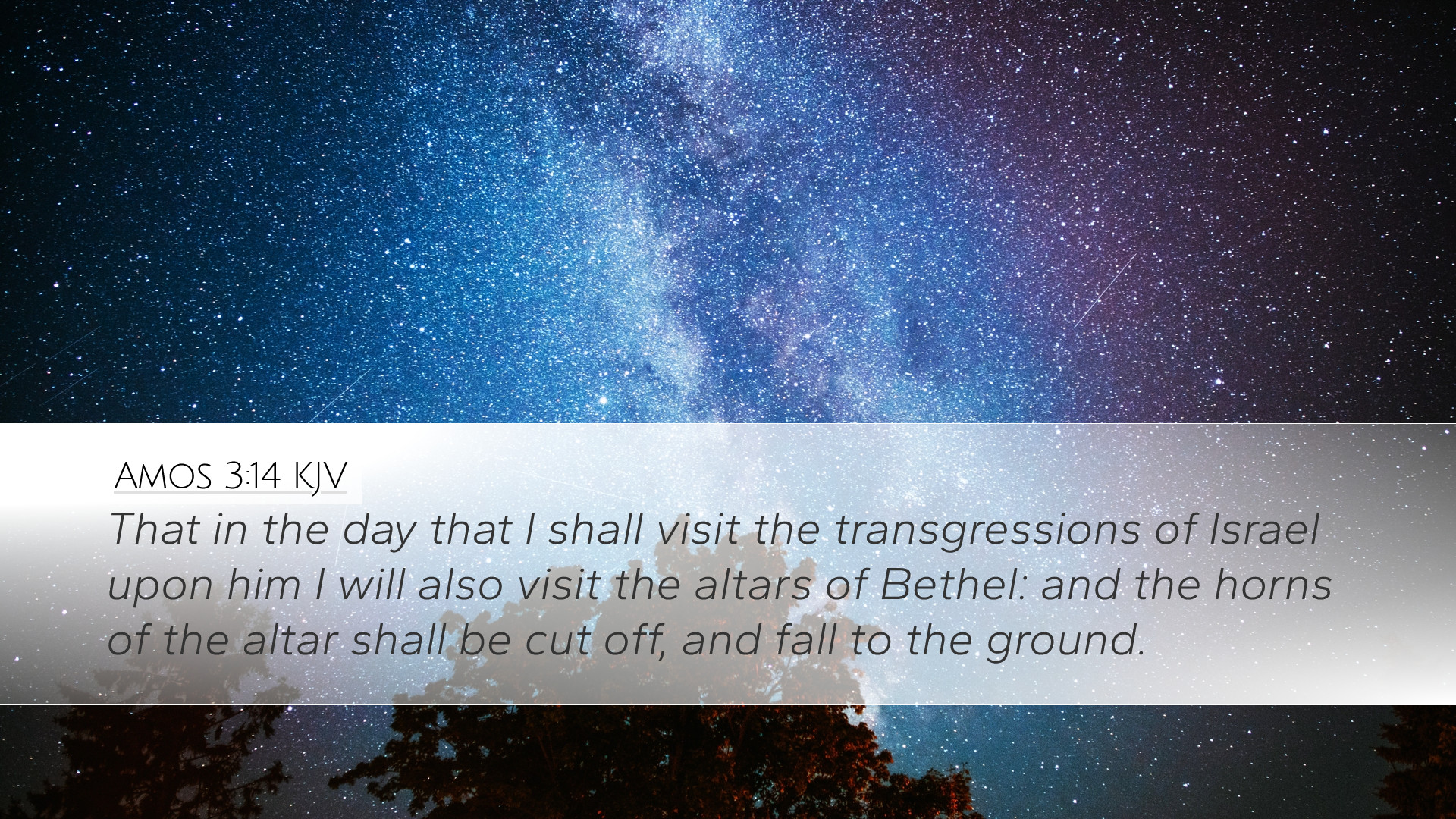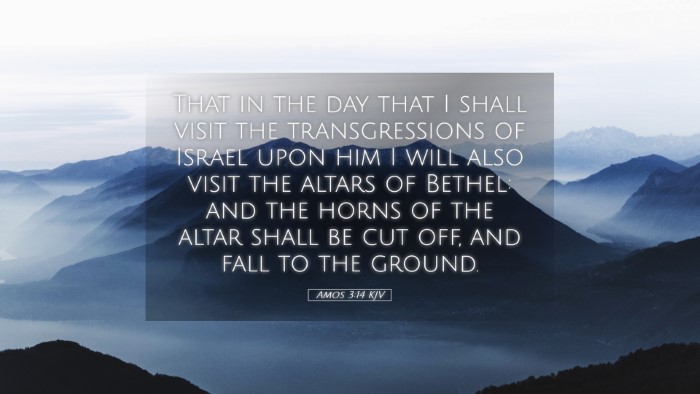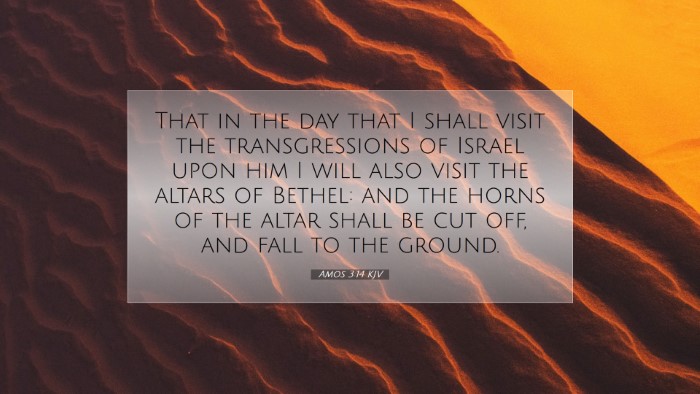Old Testament
Genesis Exodus Leviticus Numbers Deuteronomy Joshua Judges Ruth 1 Samuel 2 Samuel 1 Kings 2 Kings 1 Chronicles 2 Chronicles Ezra Nehemiah Esther Job Psalms Proverbs Ecclesiastes Song of Solomon Isaiah Jeremiah Lamentations Ezekiel Daniel Hosea Joel Amos Obadiah Jonah Micah Nahum Habakkuk Zephaniah Haggai Zechariah MalachiAmos 3:14
Amos 3:14 KJV
That in the day that I shall visit the transgressions of Israel upon him I will also visit the altars of Bethel: and the horns of the altar shall be cut off, and fall to the ground.
Amos 3:14 Bible Commentary
Commentary on Amos 3:14
Verse Citation: Amos 3:14 - "That in the day that I shall visit the transgressions of Israel upon him I will also visit the altars of Bethel: and the horns of the altar shall be cut off, and fall to the ground."
This verse is a significant point within the context of the prophetic ministry of Amos, serving as a dire warning to the people of Israel regarding the consequences of their idolatry and moral decay. The following commentary synthesizes insights from Matthew Henry, Albert Barnes, and Adam Clarke.
Contextual Background
Amos, a shepherd from Tekoa, delivered his message during a time of prosperity for Israel. However, this prosperity was coupled with deep social injustice and a disregard for genuine worship. Amos contrasts the outward shows of religion, like the altars at Bethel, with the inward spiritual corruption present in Israel’s heart.
The Lord's Visitations
Divine Accountability: The phrase "that in the day that I shall visit" signifies God's impending judgment. Henry notes that such visitations are often for two purposes: either for mercy or for punishment. In this context, Amos emphasizes the latter, indicating that the transgressions of Israel have reached a limit that demands God's intervention.
Idolatry at Bethel
Historical Significance: The altars at Bethel were established by Jeroboam as places of worship that deviated from the true worship prescribed by God in Jerusalem. Barnes highlights that these altars symbolize the spiritual corruption that permeated Israel, where the people combined true worship with idol worship. The cutting off of the "horns of the altar" is a vivid image of divine judgment, denoting a complete rejection of false worship.
The Consequences of Sin
Symbolism of Destruction: The act of cutting off the horns is rich in symbolic meaning. Adam Clarke elaborates that horns symbolize power and safety. Thus, the fall of the altar's horns signifies not just the destruction of the place of worship but the downfall of the perceived security it represented. The people erroneously believed their rituals were sufficient to appease God, but Amos reveals the underlying truth—God desires righteousness, not mere ritualism.
Theological Implications
Reflections on Divine Judgment: This passage serves as a cautionary tale about the nature of God's holiness. Henry points out that God's judgments are both judicial and corrective, aiming to restore rather than just punish. The implications of such divine visitations remind the readers of the seriousness with which God regards the integrity of worship and ethical living.
Call to Introspection: For pastors and theologians, this text demands introspection regarding contemporary practices of worship. Are modern altars (places of worship, traditions, and rituals) being erected that may distract from an authentic relationship with God? The question becomes not merely about what rituals are performed but about whether they are grounded in genuine faith and moral living.
Conclusion: A Call to Righteousness
The message of Amos 3:14 is a timeless reminder of the consequences of idolatry and moral failure. The fervor for social justice, ethical behavior, and true worship must remain at the forefront of the Christian faith. As the faithful reflect on this passage, they are challenged to examine the altars in their lives—those things which may inadvertently take the place of God.
In summary, Amos 3:14 serves as both a warning and a profound theological insight into the character of God and His expectations for His people. It calls for a deep examination of community and individual practices against the backdrop of biblical fidelity and righteousness.


